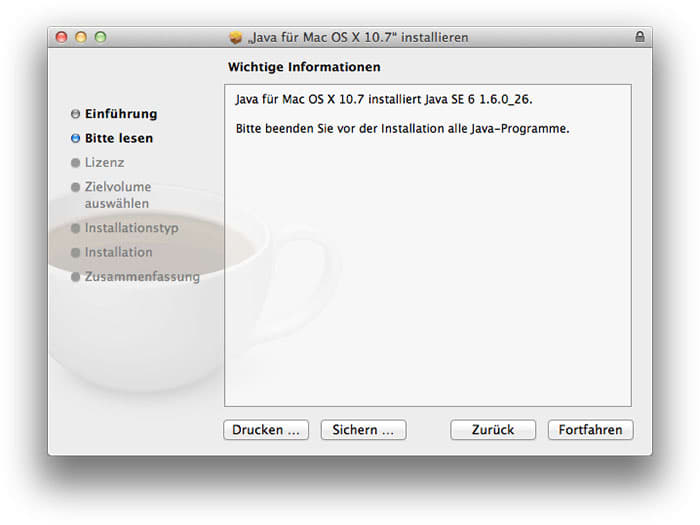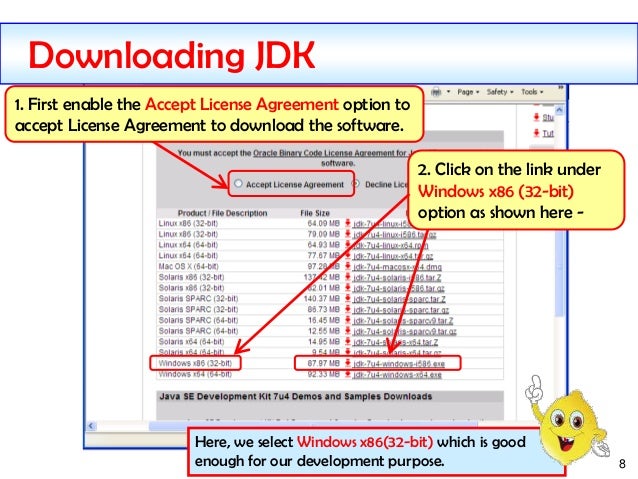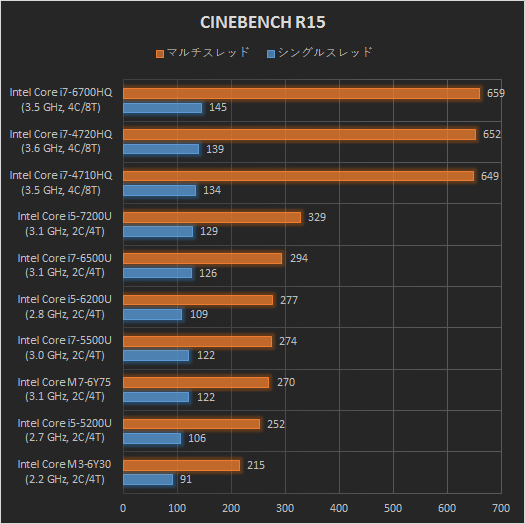- Download Java 7 Update 51 For Mac
- Download Java Se 7 Mac
- Installing Java On Windows 7
- Download Java For Mac Os X
- Install Java On Mac
Installation Guide: SAP GUI 7.50 Java for Mac OS Notes: - This document has been updated and on Mac OS Catalina 10.15.2 release. New software versions are released continuously so the version numbers may not match those found in this document. Install Java SE 1) Go to the following URL: Press the red Java Download button. To get JDK 7 up, I downloaded the JDK from Oracle.They have a nice dmg file, which makes it easy to install. After reading their installation instructions and running /usr/libexec/javahome (which.
Join the DZone community and get the full member experience.
Join For Free To get JDK 7 up,
- I downloaded the JDK from Oracle. They have a nice dmg file, which makes it easy to install.
- After reading their installation instructions and running /usr/libexec/java_home (which I didn't even know about), it still wasn't defaulting to JDK 7.
Surgery required. So, I headed over to:
This is where the system jvm's are stored. You'll notice a symbolic link for CurrentJDK. It probably points to:
You're going to want to point that to the new JDK, which java_home tells us is located in:

So, the magic commands you need are:
Then, you should be good:
This particular file patches the VMware to install macOS Catalina on VMware. Mac os download for virtualbox.
Published at DZone with permission of Brian O' Neill, DZone MVB. See the original article here.
Opinions expressed by DZone contributors are their own.

- Class
Class Mac

- javax.crypto.Mac
Download Java 7 Update 51 For Mac
- All Implemented Interfaces:
- Cloneable
This class provides the functionality of a 'Message Authentication Code' (MAC) algorithm.A MAC provides a way to check the integrity of information transmitted over or stored in an unreliable medium, based on a secret key. Typically, message authentication codes are used between two parties that share a secret key in order to validate information transmitted between these parties.
A MAC mechanism that is based on cryptographic hash functions is referred to as HMAC. HMAC can be used with any cryptographic hash function, e.g., SHA256 or SHA384, in combination with a secret shared key. HMAC is specified in RFC 2104.
Every implementation of the Java platform is required to support the following standard
Macalgorithms:- HmacMD5
- HmacSHA1
- HmacSHA256
- Since:
- 1.4
Constructor Summary
Constructors Modifier Constructor and Description protectedMac(MacSpi macSpi, Provider provider, String algorithm)
Method Summary
Methods Modifier and Type Method and Description Objectclone()Returns a clone if the provider implementation is cloneable.byte[]doFinal()byte[]doFinal(byte[] input)Processes the given array of bytes and finishes the MAC operation.voiddoFinal(byte[] output, int outOffset)StringgetAlgorithm()Returns the algorithm name of thisMacobject.static MacgetInstance(String algorithm)Returns aMacobject that implements the specified MAC algorithm.static MacgetInstance(String algorithm, Provider provider)Returns aMacobject that implements the specified MAC algorithm.static MacgetInstance(String algorithm, String provider)Returns aMacobject that implements the specified MAC algorithm.intgetMacLength()ProvidergetProvider()Returns the provider of thisMacobject.voidinit(Key key)voidinit(Key key, AlgorithmParameterSpec params)Initializes thisMacobject with the given key and algorithm parameters.voidreset()voidupdate(byte input)Processes the given byte.voidupdate(byte[] input)voidupdate(byte[] input, int offset, int len)Processes the firstlenbytes ininput, starting atoffsetinclusive.voidupdate(ByteBuffer input)Processesinput.remaining()bytes in the ByteBufferinput, starting atinput.position().Methods inherited from class java.lang.Object
equals, finalize, getClass, hashCode, notify, notifyAll, toString, wait, wait, wait

Constructor Detail
Mac
- Parameters:
macSpi- the delegateprovider- the provideralgorithm- the algorithm
Method Detail
getAlgorithm
Returns the algorithm name of thisMacobject.This is the same name that was specified in one of the
getInstancecalls that created thisMacobject.- Returns:
- the algorithm name of this
Macobject.
getInstance
Returns aMacobject that implements the specified MAC algorithm.This method traverses the list of registered security Providers, starting with the most preferred Provider. A new Mac object encapsulating the MacSpi implementation from the first Provider that supports the specified algorithm is returned.
Note that the list of registered providers may be retrieved via the
Security.getProviders()method.- Parameters:
algorithm- the standard name of the requested MAC algorithm. See the Mac section in the Java Cryptography Architecture Standard Algorithm Name Documentation for information about standard algorithm names.- Returns:
- the new
Macobject. - Throws:
NoSuchAlgorithmException- if no Provider supports a MacSpi implementation for the specified algorithm.- See Also:
Provider
getInstance
Returns aMacobject that implements the specified MAC algorithm.A new Mac object encapsulating the MacSpi implementation from the specified provider is returned. The specified provider must be registered in the security provider list.
Note that the list of registered providers may be retrieved via the
Security.getProviders()method.- Parameters:
algorithm- the standard name of the requested MAC algorithm. See the Mac section in the Java Cryptography Architecture Standard Algorithm Name Documentation for information about standard algorithm names.provider- the name of the provider.- Returns:
- the new
Macobject. - Throws:
NoSuchAlgorithmException- if a MacSpi implementation for the specified algorithm is not available from the specified provider.NoSuchProviderException- if the specified provider is not registered in the security provider list.IllegalArgumentException- if theprovideris null or empty.- See Also:
Provider
getInstance
Returns aMacobject that implements the specified MAC algorithm.A new Mac object encapsulating the MacSpi implementation from the specified Provider object is returned. Note that the specified Provider object does not have to be registered in the provider list.
- Parameters:
algorithm- the standard name of the requested MAC algorithm. See the Mac section in the Java Cryptography Architecture Standard Algorithm Name Documentation for information about standard algorithm names.provider- the provider.- Returns:
- the new
Macobject. - Throws:
NoSuchAlgorithmException- if a MacSpi implementation for the specified algorithm is not available from the specified Provider object.IllegalArgumentException- if theprovideris null.- See Also:
Provider
getProvider
- Returns:
- the provider of this
Macobject.
getMacLength
Returns the length of the MAC in bytes.- Returns:
- the MAC length in bytes.
init
- Parameters:
key- the key.- Throws:
InvalidKeyException- if the given key is inappropriate for initializing this MAC.
init
Initializes thisMacobject with the given key and algorithm parameters.- Parameters:
key- the key.params- the algorithm parameters.- Throws:
InvalidKeyException- if the given key is inappropriate for initializing this MAC.InvalidAlgorithmParameterException- if the given algorithm parameters are inappropriate for this MAC.
update
- Parameters:
input- the input byte to be processed.- Throws:
IllegalStateException- if thisMachas not been initialized.
update
Processes the given array of bytes.- Parameters:
input- the array of bytes to be processed.- Throws:
IllegalStateException- if thisMachas not been initialized.
update
Processes the firstlenbytes ininput, starting atoffsetinclusive.- Parameters:
input- the input buffer.offset- the offset ininputwhere the input starts.len- the number of bytes to process.- Throws:
IllegalStateException- if thisMachas not been initialized.
update
Processesinput.remaining()bytes in the ByteBufferinput, starting atinput.position(). Upon return, the buffer's position will be equal to its limit; its limit will not have changed.- Parameters:
input- the ByteBuffer- Throws:
IllegalStateException- if thisMachas not been initialized.- Since:
- 1.5
doFinal
Finishes the MAC operation.A call to this method resets this
Macobject to the state it was in when previously initialized via a call toinit(Key)orinit(Key, AlgorithmParameterSpec). That is, the object is reset and available to generate another MAC from the same key, if desired, via new calls toupdateanddoFinal. (In order to reuse thisMacobject with a different key, it must be reinitialized via a call toinit(Key)orinit(Key, AlgorithmParameterSpec).- Returns:
- the MAC result.
- Throws:
IllegalStateException- if thisMachas not been initialized.
doFinal
Finishes the MAC operation.A call to this method resets this
Macobject to the state it was in when previously initialized via a call toinit(Key)orinit(Key, AlgorithmParameterSpec). That is, the object is reset and available to generate another MAC from the same key, if desired, via new calls toupdateanddoFinal. (In order to reuse thisMacobject with a different key, it must be reinitialized via a call toinit(Key)orinit(Key, AlgorithmParameterSpec).The MAC result is stored in
output, starting atoutOffsetinclusive.- Parameters:
output- the buffer where the MAC result is storedoutOffset- the offset inoutputwhere the MAC is stored- Throws:
ShortBufferException- if the given output buffer is too small to hold the resultIllegalStateException- if thisMachas not been initialized.
doFinal
Processes the given array of bytes and finishes the MAC operation.A call to this method resets this
Macobject to the state it was in when previously initialized via a call toinit(Key)orinit(Key, AlgorithmParameterSpec). That is, the object is reset and available to generate another MAC from the same key, if desired, via new calls toupdateanddoFinal. (In order to reuse thisMacobject with a different key, it must be reinitialized via a call toinit(Key)orinit(Key, AlgorithmParameterSpec).- Parameters:
input- data in bytes- Returns:
- the MAC result.
- Throws:
IllegalStateException- if thisMachas not been initialized.
reset
Resets thisMacobject.A call to this method resets this
Macobject to the state it was in when previously initialized via a call toinit(Key)orinit(Key, AlgorithmParameterSpec). That is, the object is reset and available to generate another MAC from the same key, if desired, via new calls toupdateanddoFinal. (In order to reuse thisMacobject with a different key, it must be reinitialized via a call toinit(Key)orinit(Key, AlgorithmParameterSpec).
clone
Returns a clone if the provider implementation is cloneable.- Overrides:
clonein classObject- Returns:
- a clone if the provider implementation is cloneable.
- Throws:
CloneNotSupportedException- if this is called on a delegate that does not supportCloneable.- See Also:
Cloneable
Download Java Se 7 Mac
- Class
- Summary:
- Nested |
- Field |
- Constr |
Installing Java On Windows 7

Download Java For Mac Os X
- Detail:
- Field |
- Constr |
Submit a bug or feature
For further API reference and developer documentation, see Java SE Documentation. That documentation contains more detailed, developer-targeted descriptions, with conceptual overviews, definitions of terms, workarounds, and working code examples.
Copyright © 1993, 2020, Oracle and/or its affiliates. All rights reserved. Use is subject to license terms. Also see the documentation redistribution policy.
Install Java On Mac
Scripting on this page tracks web page traffic, but does not change the content in any way.

